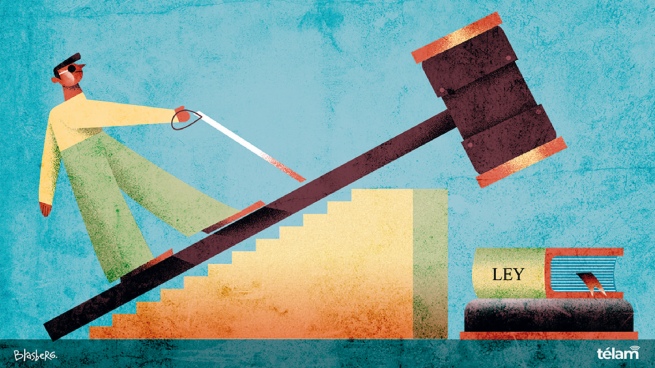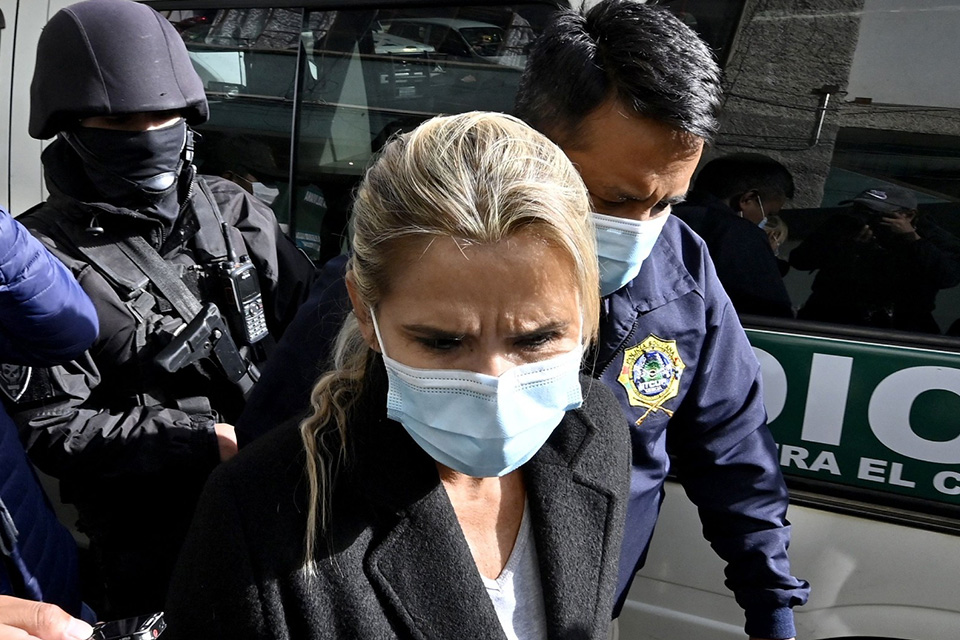The project for a new law on disability, which will be presented in August in the National Congress, is being built “from the perspective of gender and intersectionality”, based on a paradigm that recognizes the rights of people, simplifies procedures and “compulsory and systematic training for the three powers,” assured the director of the National Agency for Disability (Andis), Fernando Galarraga.
For this, since March 21, they have been carrying out “federal inquiries” via public hearings convened by Andis in different parts of the countryin which organizations and people contribute their perspective to nurture the debate towards the project that will replace the current National Law No. 22,431, sessions that will end on June 15.
“The form of construction of the new law will be from the gender perspective, with intersectionality, where disability will be added to conditions, such as women, sexuality, native peoples; and especially from the social model of disability, which establishes the Convention on the Rights of Persons with Disabilities” (CRPD), he said in dialogue with Télam Galarraga.
The transformation of a medical or rehabilitative paradigm to another social “it implies stop seeing people with disabilities as sick, with a deficit or those who need to be cured, in addition to the looks that generate stigmatization,” he added.
Argentina signed the CRPD through the National Law No. 26,378, sanctioned in 2008, which “recognizes that discrimination against any person on the basis of their disability constitutes a violation of the dignity and inherent value of the human being.

Six years later, in 2014, National Law No. 27,044 gave constitutional status to the CRPD, in line with the provisions of the Magna Carta reformed in 1994.
Along this path, the director of Andis highlighted “the need to promote and protect the human rights of all persons with disabilities, including those who need more intensive support”.
The draft framework regulation also recognizes “the importance for people with disabilities of their individual autonomy and independence, including the freedom to make their own decisions”.
The discussed topics who received contributions in the public hearings were plotted in the areas of eeducation, work, health, social protection, accessibility, political participation and autonomous and independent life, among other axes.
When asked about which ones will be taken into account, Galagarra pointed out that it is necessary to “find a balance between the reality of Argentina and what they ask of you”.
“We understand that we are going to make ahey modern and progressive, we have the backing of the President to advance in these changes and a very important movement has been generated, because many transformations do not have to do exclusively with something budgetary”, he said.
In this sense, he drew a parallel between the work carried out by the Ministry of Women, Gender and Diversity in terms of gender and public policies. “We are doing it in disability, so that each area designs policies and actions in its competences with a disability perspective,” she added.
Between the modifications that the new law will includethere will be the “systematic and mandatory training and education with a gender and disability perspective, extensive to health personnel, teachers and the three powers” that Galarraga described as “a kind of Micaela Law.”
It is also considered the control of your application through a independent mechanism and it is planned to create transversal areas of disability to avoid having them in different ministries, which increases the bureaucracy that families suffer to access a certificate or a benefit.
“If you have a good registry, certification mechanism, audit, the certificate renewal process is not so cumbersome; that’s why we’re going to change the availability of documents so that our database, which has 1.5 million people with disabilitiesdialogue with other organizations, because the process of renewing the certificates is a great claim”, explained the director of Andis.

In this sense, Galarraga pointed out that “Disability is not suffered, but barriers are, and we have to change that.”
For its part, Gabriela Troiano, member of the Network for the Rights of Persons with Disabilities (REDI – http://redi.org.ar/), emphasized the main claims and needs that must be taken into account in the construction of the new law.
As a first point, Troiano raised have a bill to be able to give opinions on guidelines signed by the CRPD.
Through a document delivered to Andis, the members of REDI referred to the “lack of statistics in public policies” and objected to “shortcomings” in the data collected in the recent 2022 National Census.
“The Census asked if there were any members with ‘difficulties’ in the households, but it is unknown how many people with disabilities live in those households, nor if they are trans, low-income or from indigenous peoples,” said Troiano.
Another axis is “autonomous and independent lifein which issues such as personal assistance, that of the therapeutic assistant, the issue of deinstitutionalization, strictly linked to independent life, appear,” detailed the activist.

At that point it is sought that the person can access a job and receive support to be able to function in daily life.
“For those who are in wheelchairs and have cerebral palsy, it is important that they have someone to do their voice, who can write with large print due to visual impairment, or for those who cannot get out of bed by themselves,” exemplified.
Furthermore, he referred to fulfillment of at least 4% of the labor quota in the national State -established by the Law that will seek to be modified- and its autarchic and decentralized entities and respect for the autonomy of women and girls, who suffer abuse. “A gender perspective is needed,” added Troiano.
Regarding existing bills that propose or claim to have a certificate of permanent disability, he considered that “we must find an intermediate because there are disabilities that are becoming more complex, changing and that must be updated.”
Finally, Troiano stressed the importance of transport accessibilityin education with bibliography in accessible formatss, sign languages, audio books “to eliminate barriers and have equal opportunities”.


















